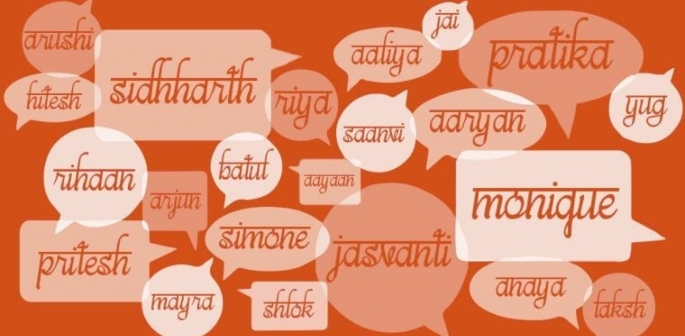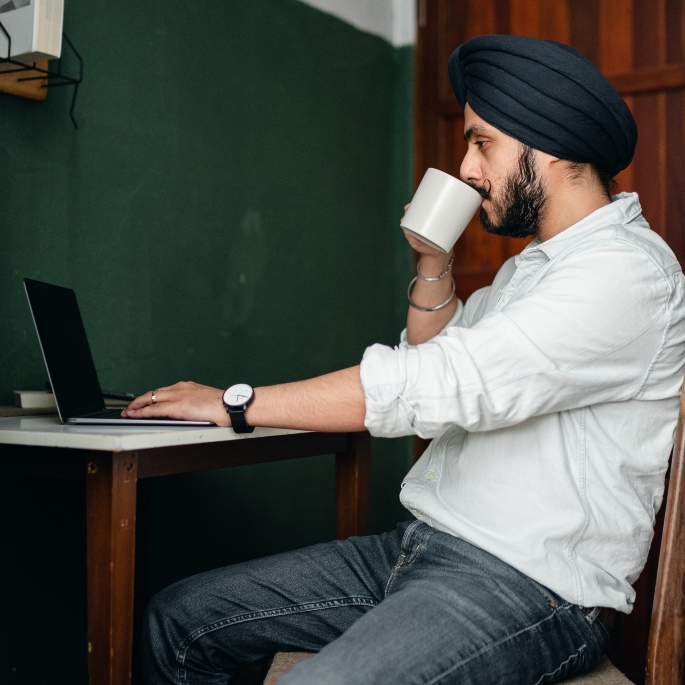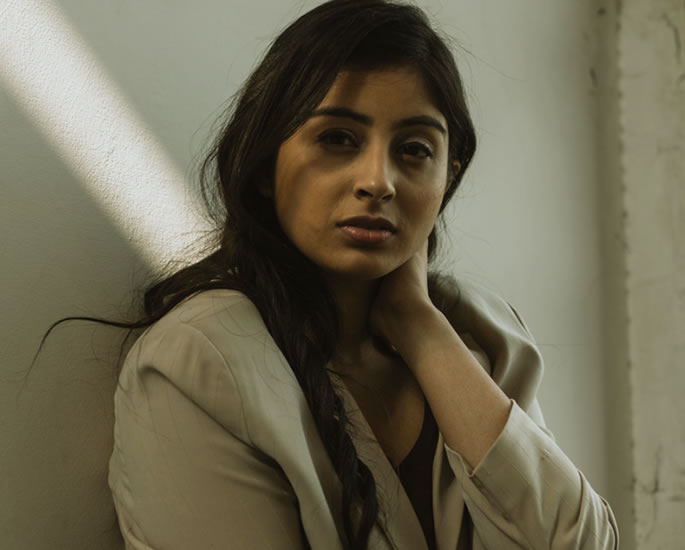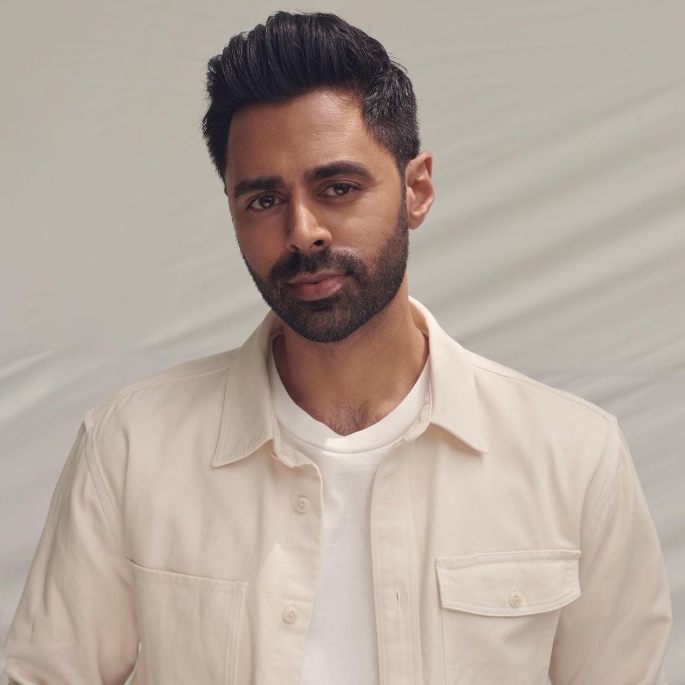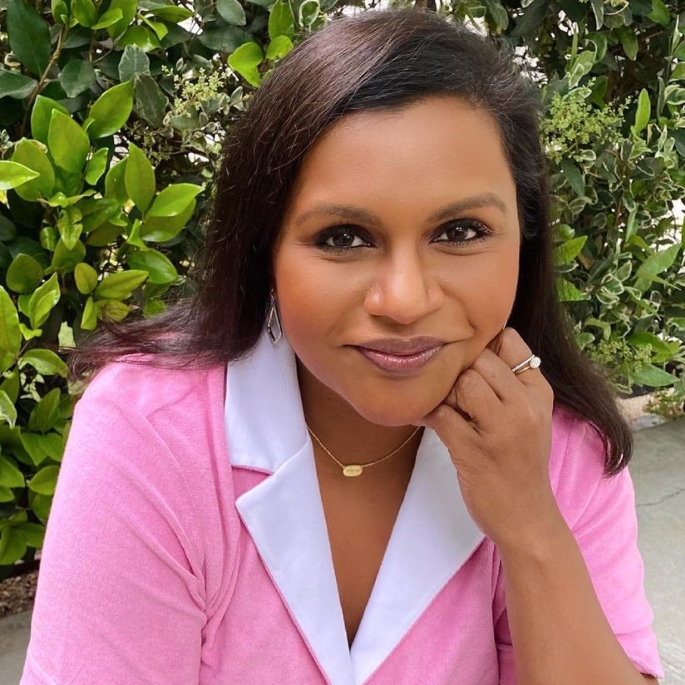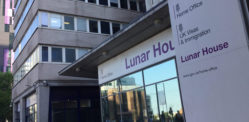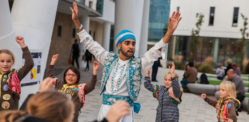"They had a policy for all Asians to change their names"
There are many types of prejudice facing Indians in modern society and one of those is name discrimination.
Many different problems surround this topic and they can all affect those facing it.
Name discrimination can occur when a person is searching for a new job or even during employment.
Studies found that those with ethnic names had to make more job applications to secure a callback.
Those who do work may find themselves with a company that requires them to change their name to a more anglicised version. How does this affect a person’s identity?
Asian names can be hard to pronounce for some people. Nevertheless, are such individuals trying their best before they decide they will just call you by an English name?
Even in the entertainment world, there are examples of name discrimination. Here are the top examples of the problems surrounding this issue.
Applying for Jobs
A study called the GEMM (Growth, Equal Opportunities, Migration and Markets) survey researched job applications.
Researchers applied for over 3000 jobs, using different names from various ethnic backgrounds.
All of the CVs and cover letters were otherwise identical. Only 15% of those from an ethnic background received a callback compared to 24% of white applicants.
It was revealed that those from an ethnic minority had to send 60% more applications to get as many callbacks as the white majority. It also found that British employers were the most discriminatory.
The data collected was compared to similar British studies done in the 60s. Valentina di Stasio, an assistant professor involved in the study said:
“Because all of the minority applicants in our experiment were either British-born or had been British-educated from a young age, concerns about poor English language can’t explain the large gaps in call-backs from employers.
“In Britain, it’s very high by international standards.
“We saw that the level of name discrimination faced by South Asians was as strong today as it was at the end of the 1960s in terms of the level of discrimination that applicants faced.
“As a single individual, it’s very hard to prove discrimination, and that’s why it’s unreported.”
Sonia Kang is an assistant professor at the University of Toronto, Canada who has researched CV whitening and name discrimination. She states:
“I don’t think it’s really active racism.
“If a hiring manager sees a name that they don’t know how to pronounce they might think, ‘I didn’t want to say their name wrong so I skipped that one and went to the next one’.”
Blind recruitment has been suggested as the solution to this problem. This means a person’s name, as well as other factors including gender and race, are removed from their CV.
Applicants are assessed purely on their suitability for the position, reducing the risk of conscious or unconscious bias.
Companies including HSBC, BBC, Google, and Deloitte all use blind recruitment. Though, it’s difficult to say how effective it is.
Applicants will still need to be interviewed and unconscious bias could still creep in at this stage.
Name and Caste
India’s civil service exam is sat by a million people every year for around a thousand job vacancies.
90% of Indian surnames reveal a person’s caste and some say it should be concealed throughout the application process.
Names and faith are not revealed until the final interview stage and a report says this is affecting the success of those from the Dalit caste.
Many in India consider it as one of the ‘lowest’ castes and in the past referred to it as the ‘untouchables’.
Research has found that interviewers are showing bias against those from the Dalit caste.
The Dalit Indian Chamber of Commerce and Industry looked at the position of Dalits in society. The study was requested by the Ministry of Social Justice and Empowerment.
As a result of the findings, a request has been made to keep names concealed throughout the application process. This includes the final interview stage.
PSN Murti who was involved in the study mentions:
“The same anonymity should prevail throughout the process to give everyone an equal chance because India is not a society where you are taken on merit. It is ridden with name discrimination.
“Over 90% of surnames reveal your caste and, once it is known, a whole chain reaction starts. Objectivity goes out of the window.”
The civil service exam is extremely tough and competitive and many take special classes and receive coaching beforehand to gain an extra edge.
These luxuries are not free and are certainly ones that few Dalits can afford.
Swaran Ram Darapuri who is a retired police officer and a Dalit who made it through the exam elaborates further, with recommendations:
“Dalit candidates will never have spoken English at home or with their friends. They struggle to be fluent.
“They lack social confidence because of generations of oppression and exclusion.”
“Then you have interviewers who, the moment they hear the caste from the surname, are going to be prejudiced against them.
“For the state to look after all its citizens, you need a fair representation of every community.
“The civil service should be a mirror image of society because only then can India be a truly representative democracy.”
There are 200 million Dalits in India, accounting for 16% of the country’s population. Having said that, out of the 89 secretaries at the federal level in Delhi, only one is a Dalit.
Mispronunciation
In 2019, #MyNameIs went viral on social media.
The campaign was started after Senator David Purdue mispronounced the Vice President of the USA, Kamala Harris’s name at an election rally.
People around the world used the campaign to reveal unique cultural names and their meanings.
Names can be mispronounced but an effort should be made to learn how to say it, rather than simply giving the person a nickname or a westernised version.
Behavioural scientist Dr Pragya Agarwal said:
“Names are an integral part of our identity and self.
“When names are mispronounced, it negates a person’s sense of self, betraying their culture and eradicating an important part of their ethnic identity.
“Or if names are shortened and anglicised, it is done so for social convenience.”
“People of colour generally – and rightly – resent the mispronunciation of their name because it amounts to a distortion of their identity.”
Indian-Muslim comedian Hasan Minhaj appeared on the Ellen DeGeneres Show in 2019 and had to correct the TV host on her pronunciation of his name.
The clip, which is on his Twitter page has over 4 million views.
Sue Obeidi, director of the Hollywood Bureau for the US Muslim Public Affairs Council says things are moving in the right direction:
“When the name is mispronounced, it’s become very acceptable to not let it go. That’s definitely something we didn’t see even five years ago.”
It is not uncommon to find South Asians who have adopted an alternative English-sounding name to save others from having to try and pronounce it.
There are even those who resent their own name but could others do better by simply learning the pronunciation?
Adopting a New Name
The movie Horrible Bosses (2011) had a scene that exemplifies name discrimination with an Asian adopting a new name in their workplace.
A character starts up his car’s Nav Guide and is connected to a man who introduces himself as Gregory.
Gregory has a very distinct Indian accent and this is the exchange that follows:
“I’m always curious about these things but is your real name, Gregory?”
“No sir, my real name is Atmanand.”
“How do you get Gregory from that?”
“Gregory was assigned to me by Nav Guide.”
“Why don’t they let you use your real name?”
“They say many Americans find our real names hard to pronounce.”
“I’m not gonna play by their rules anymore, from now on I’m going to call you….”
Various attempts are made to pronounce Atmanand but in the end, the men in the car give up and say:
“I’m gonna call you Gregory because that name’s a f**king nightmare.”
In the same year as the movie was released a telesales company in Leicester was found guilty of name discrimination. They were forcing their employees of Indian origin to use English names.
It was employee Rahul Jain who won the case after he was made to change his name to Rob Matthews to ensure ‘effortless communication’. His white colleagues were allowed to use their original names.
But interestingly, the company is owned by two Indian men, Uresh Naik, and Suresh Patel.
An employment tribunal found the company guilty of racial discrimination amidst being told that they had:
“A number of staff of Indian ethnic origin who adopted anglicised names at work.”
Examples of this included Aarti being changed to Anna, Prakhash being changed to Terry, and Faizal becoming Fred.
After the tribunal victory, Rahul spoke about confronting this issue and the racism angle:
“I was the only person in the company to challenge what was happening. They had a policy for all Asians to change their names.
“There were at least 30 other people of Indian origin who did this and are still working there. What the company did is outrageous and totally racist.”
Unfortunately, this is not an isolated incident of name discrimination and there are likely to be many more cases that are not reported.
The Entertainment Industry
There are other examples of name discrimination in the entertainment industry, as well as those who have changed their name in order to avoid the problem.
Actor Sir Ben Kingsley, who was born Krishna Bhanji, told Radio Times of his experience:
“As soon as I changed my name, I got the jobs.
“I changed my clunky invented Asian name to a more pronounceable, and acceptable, universal name in order to play Mahatma Gandhi. There’s your irony.”
Bollywood superstar Amitabh Bachchan was born Amitabh Shrivastava.
His father changed it as he was afraid the ‘low-caste’ surname would stop his son from getting into school.
Other examples are actress Mindy Kaling who was born Vera Chokalingam, actor Kal Penn whose real name is Kalpen Modi, and actress Sunny Leone whose birth name is Karenjit Kaur.
All three said that changing their name to something less ethnic helped their career prospects.
There are plenty of South Asian actors appearing in films and television shows today but how many of them are given an Asian character name?
More often than not they are given an English name or sometimes an English name and an Asian surname.
When they do have an Asian first name, they seem to have an accent.
It appears that the entertainment world sees ethnic-named immigrants and westernised South Asian identity as two different areas.
The issue of name discrimination is certainly prevalent in many parts of the world and cannot be ignored.
It can affect a person’s job prospects, a child getting a place in a school, and even hurt self-esteem.
Whether an individual chooses to adopt an English name to avoid these problems is always a solution.
However, that choice should only be that of the individual. Names are part of our identity.
They should not be used to judge a person as other forms of discrimination are.
Embracing an individual for everything they are, including what their name is, is the only way forward.



















































